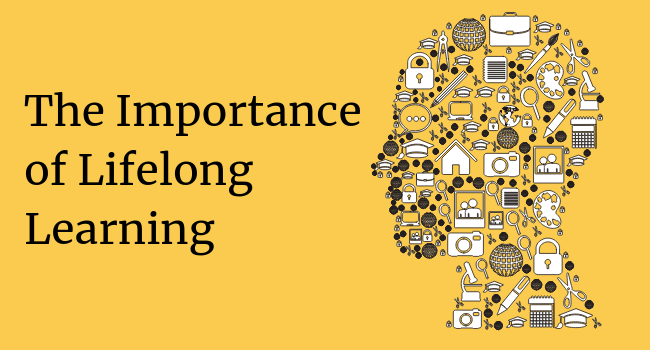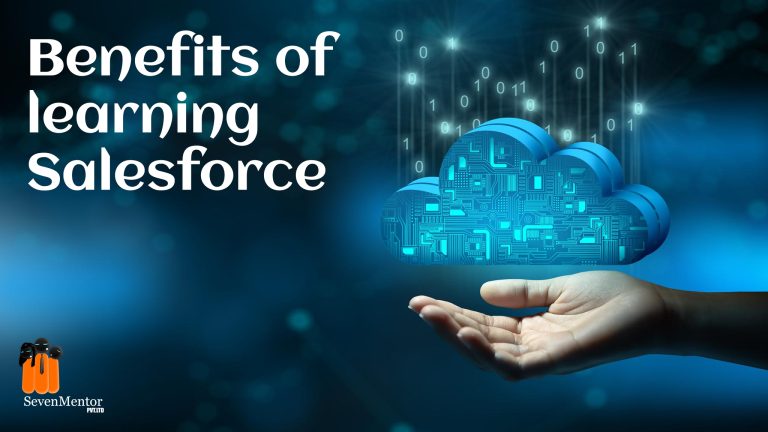-
Table of Contents
“Unlock your potential, embrace lifelong learning.”
Introduction:
Lifelong learning and continuing education play a crucial role in personal and professional development. In today’s rapidly changing world, acquiring new knowledge and skills is essential to adapt, grow, and remain competitive. Lifelong learning enables individuals to stay intellectually engaged, broaden their perspectives, and enhance their problem-solving abilities. It fosters personal growth, boosts self-confidence, and promotes a sense of fulfillment. Moreover, continuing education ensures that professionals stay up-to-date with the latest advancements in their fields, enabling them to provide high-quality services and contribute to their industries’ progress. Overall, the importance of lifelong learning and continuing education cannot be overstated, as they are key to personal and professional success in the modern world.
The Benefits of Lifelong Learning and Continuing Education
The Benefits of Lifelong Learning and Continuing Education
In today’s fast-paced and ever-changing world, the importance of lifelong learning and continuing education cannot be overstated. Gone are the days when education was limited to the early years of life or confined to a specific field of study. With advancements in technology and the constant evolution of industries, it has become crucial for individuals to embrace lifelong learning and continue their education throughout their lives.
One of the key benefits of lifelong learning is the opportunity it provides for personal growth and development. By engaging in continuous learning, individuals can expand their knowledge and skills, enabling them to adapt to new challenges and opportunities. Lifelong learning allows individuals to stay relevant in their chosen fields and remain competitive in the job market. It also fosters a sense of curiosity and intellectual stimulation, keeping the mind active and engaged.
Continuing education also offers numerous professional benefits. In today’s rapidly changing job market, employers value employees who are committed to learning and staying up-to-date with the latest industry trends. By investing in their education, individuals can enhance their career prospects and increase their earning potential. Continuing education can also open doors to new career opportunities and help individuals transition into different fields.
Moreover, lifelong learning and continuing education contribute to personal fulfillment and overall well-being. Learning new skills and acquiring knowledge can boost self-confidence and self-esteem. It provides a sense of accomplishment and satisfaction, as individuals see themselves grow and progress. Lifelong learning also promotes personal resilience and adaptability, as individuals become more equipped to face challenges and navigate through life’s uncertainties.
Furthermore, lifelong learning has been linked to improved cognitive function and mental health. Engaging in intellectual activities and challenging the brain through learning can help prevent cognitive decline and reduce the risk of age-related diseases such as dementia. It has also been shown to improve memory, attention, and problem-solving skills. Lifelong learning keeps the brain active and sharp, promoting overall mental well-being.
In addition to personal and professional benefits, lifelong learning and continuing education have broader societal advantages. A society that values and promotes lifelong learning is one that fosters innovation, creativity, and progress. Lifelong learners bring fresh perspectives and ideas to the table, driving innovation and pushing boundaries. They contribute to the growth and development of their communities, both economically and socially.
Moreover, lifelong learning promotes social cohesion and inclusivity. It provides opportunities for individuals from diverse backgrounds to come together, learn from each other, and bridge gaps. Lifelong learning initiatives can help address social inequalities and promote equal access to education, ensuring that everyone has the chance to learn and grow.
In conclusion, the benefits of lifelong learning and continuing education are vast and far-reaching. From personal growth and professional development to improved cognitive function and societal progress, lifelong learning plays a crucial role in today’s world. Embracing lifelong learning is not only beneficial for individuals but also for society as a whole. By investing in our education and committing to continuous learning, we can unlock our full potential and contribute to a brighter future.
How Lifelong Learning Enhances Personal and Professional Growth
Lifelong learning and continuing education are essential for personal and professional growth. In today’s fast-paced and ever-changing world, it is crucial to keep acquiring new knowledge and skills to stay relevant and competitive. Lifelong learning not only enhances our personal development but also opens up new opportunities for career advancement.
One of the key benefits of lifelong learning is the ability to adapt to new technologies and trends. As technology continues to evolve at a rapid pace, it is essential to keep up with the latest advancements. By continuously learning and updating our skills, we can stay ahead of the curve and remain competitive in the job market. Whether it’s learning how to use new software or understanding the latest industry trends, lifelong learning allows us to embrace change and thrive in a rapidly changing world.
Moreover, lifelong learning fosters personal growth and self-improvement. It provides us with the opportunity to explore new interests and expand our horizons. Whether it’s learning a new language, taking up a hobby, or studying a subject that has always fascinated us, continuing education allows us to pursue our passions and discover new talents. This not only enriches our lives but also boosts our self-confidence and sense of fulfillment.
Continuing education also plays a vital role in professional growth. It enables us to acquire new skills and knowledge that are directly applicable to our careers. By staying updated with the latest industry practices and trends, we can enhance our job performance and increase our value to employers. Lifelong learning also opens up new career opportunities and can lead to promotions or career transitions. Employers value employees who are committed to self-improvement and are willing to invest in their own development.
Furthermore, lifelong learning helps us stay intellectually stimulated and mentally sharp. Engaging in continuous education keeps our minds active and prevents cognitive decline. Research has shown that learning new things can improve memory, enhance problem-solving skills, and even reduce the risk of age-related diseases such as dementia. By challenging ourselves intellectually, we can maintain mental agility and enjoy a higher quality of life as we age.
In addition to personal and professional growth, lifelong learning also promotes social interaction and networking. Participating in educational programs and courses allows us to connect with like-minded individuals who share similar interests and goals. These connections can lead to valuable collaborations, mentorship opportunities, and a broader professional network. Lifelong learning not only expands our knowledge but also expands our social circles, fostering meaningful relationships and a sense of community.
In conclusion, lifelong learning and continuing education are essential for personal and professional growth. By embracing continuous learning, we can adapt to new technologies, explore new interests, enhance our job performance, and stay mentally sharp. Lifelong learning not only enriches our lives but also opens up new opportunities for career advancement. It is a lifelong journey that allows us to constantly evolve and thrive in an ever-changing world. So, let’s embrace the importance of lifelong learning and commit ourselves to continuous education for a brighter future.
Lifelong Learning: A Key to Adapting in a Rapidly Changing World
In today’s rapidly changing world, the importance of lifelong learning and continuing education cannot be overstated. With advancements in technology, shifts in the job market, and evolving societal needs, it has become crucial for individuals to continuously update their knowledge and skills to stay relevant and adaptable.
Lifelong learning refers to the ongoing process of acquiring knowledge and skills throughout one’s life. It goes beyond formal education and extends into various aspects of life, including personal growth, professional development, and staying informed about current events. Lifelong learning is not limited to a specific age group or educational background; it is a mindset that anyone can adopt.
One of the key reasons why lifelong learning is essential is the rapid pace of technological advancements. Technology is constantly evolving, and new innovations are introduced regularly. To keep up with these changes, individuals must be willing to learn and adapt. For example, in the past decade, we have witnessed the rise of artificial intelligence, automation, and digitalization. These advancements have transformed industries and created new job roles that did not exist before. To remain employable and competitive, individuals must continuously update their skills and knowledge to align with these changes.
Furthermore, the job market is becoming increasingly competitive and dynamic. Gone are the days when a single degree or qualification would guarantee a lifelong career. Today, employers value individuals who possess a diverse skill set and are adaptable to change. Lifelong learning allows individuals to acquire new skills, explore different career paths, and stay ahead of the curve. It enables them to remain employable and opens up opportunities for career growth and advancement.
Moreover, lifelong learning contributes to personal growth and fulfillment. It allows individuals to pursue their passions, explore new interests, and expand their horizons. Learning new things not only enhances one’s knowledge but also boosts self-confidence and self-esteem. It provides a sense of accomplishment and satisfaction, leading to a more fulfilling and meaningful life.
Continuing education is another aspect of lifelong learning that deserves attention. Continuing education refers to the pursuit of additional education or training after completing formal education. It is particularly important for professionals who want to stay updated in their respective fields. Continuing education can take various forms, such as attending workshops, conferences, or online courses. It provides professionals with the opportunity to deepen their knowledge, acquire new skills, and network with industry experts.
In conclusion, lifelong learning and continuing education are crucial in today’s rapidly changing world. They enable individuals to adapt to technological advancements, stay competitive in the job market, and experience personal growth and fulfillment. Lifelong learning is not limited to a specific age or educational background; it is a mindset that anyone can adopt. By embracing lifelong learning, individuals can navigate the challenges and opportunities of the modern world with confidence and resilience. So, let us all commit to being lifelong learners and embrace the journey of continuous growth and development.In conclusion, lifelong learning and continuing education are of utmost importance in today’s rapidly changing world. They enable individuals to adapt to new technologies, acquire new skills, and stay relevant in their respective fields. Lifelong learning also promotes personal growth, enhances cognitive abilities, and fosters a sense of fulfillment. It is a key factor in maintaining a competitive edge in the job market and ensuring professional success. Therefore, investing in lifelong learning and continuing education is crucial for individuals to thrive in both their personal and professional lives.















